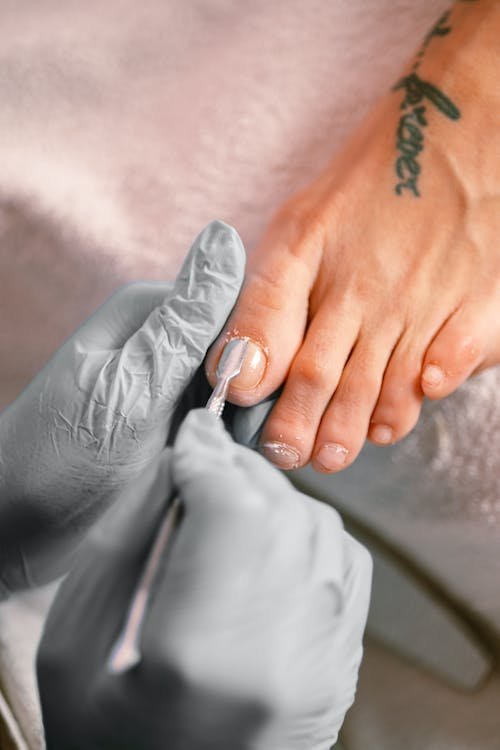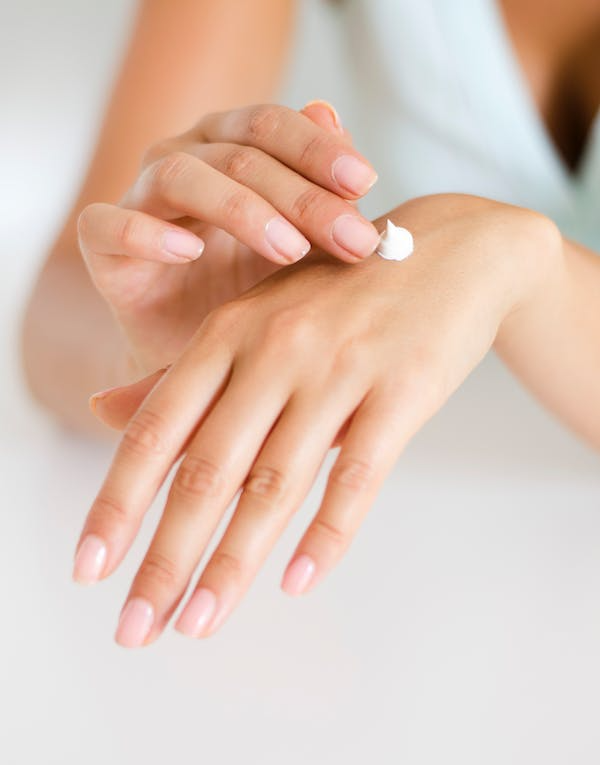
After we exercise, it’s necessary to take care of our bodies so we can stay healthy and look fresh. When we finish a tough workout, our muscles might feel tired and achy. That’s where Epsom salt, a simple and cheap home remedy, can really help our muscles feel better and ease any discomfort after exercising. But before we talk about benefits of Epsom salt for muscle recovery after workouts, let’s find out what Epsom salt is.

So, What’s Epsom Salt?
Epsom salt is a natural mineral mix made of magnesium, sulfur, and oxygen. Epsom salt has different names. It’s called magnesium sulfate in science because of what it’s made of. People found it in a spring in Epsom, England, in the 17th century, so it’s also known as English salt. They call it Bitter salt because it tastes different from regular salt.
Some less common names are Bath salt (but not all bath salts are Epsom salt) and Epsomite, another way to say magnesium sulfate. No matter what you call it, Epsom salt can do more than help your hair. It can also relax muscles, soothe feet, and even help plants grow!
Epsom salt is like a magic helper for our bodies, offering more than just muscle recovery after workouts. Check out these fantastic benefits for everyone.

Benefits of Epsom Salt For Everyone:
1. Stress Reduction:

Taking a bath with Epsom salt can help lower stress levels. It’s like giving your mind a calming break. Research suggests it not only reduce stress but also depression, and anxiety.
Enjoying Epsomite baths two to three times a week can really help you feel much less stressed.
2. Soothing Aches and Pains:

Epsom salt can help with all kinds of aches and pains, not just from exercise. Putting Bitter salt in hot water for a bath or foot soak can really help lessen leg pain, muscle strain, cramps, and overall discomfort.
Additionally, it’s believed to aid in the healing of bruises and minor scratches, though more research is needed in this area.
3. Benefits of Epsom Salt (Skin):
It can make your skin happy! Dissolve some Epsom salt in water and put it on your skin or use it during a bath to keep your skin feeling fresh and hydrated. Efficacy of magnesium sulfate baths for improving dry, itchy skin: A randomized, double-blind, placebo-controlled trial” (International Journal of Dermatology, 2014): This study found that Epsom salt baths were effective in improving symptoms of dry, itchy skin.
4. Digestive Aid:

If your stomach is feeling a bit off, then Epsom salt might help. It has properties that can help with digestion, thus keeping things running smoothly.
English salt can help clean the stomach because it works like a laxative. Studies show that Magnesium sulfate has strong laxative effects, which release digestive hormones and neurotransmitters. As a result, this makes it effective for dealing with constipation.
However, using it in large quantity over an extended period may lead to toxicity.
5. Headache Relief:

Epsom salt could lend a hand in relieving headaches. If you’re dealing with a headache, it might be worth trying out.
Magnesium sulfate, when dissolved in water or used as a paste, hydrates the skin. Its mild coarseness also makes it suitable for exfoliating the face, contributing to a potential improvement in overall skin health.
6. Sleep Support:

Some people believe that Epsom salt can help improve sleep quality. So, a nice English salt bath before bedtime could be part of a relaxing routine.
7. Benefits of Epsom Salt Hair Health:

Believe it or not, Epsomite can even be good for your hair! People use it to clean their hair and add some extra shine. Magnesium, found in Epsom salt, is considered necessary for hair growth. Using English salt on your hair is thought to make your hair healthy. People believe it can clean your hair or be used as a spray. The effect of magnesium sulfate on hair growth and thickness: A pilot study” (Journal of Cosmetic Dermatology, 2017): This study suggests that Epsom salt may promote hair growth and thickness due to its magnesium content.
8. Foot Care:

Soaking your feet in an Epsom salt bath can help with foot problems, like fungus or swelling. Epsomite proves useful in treating toenail infections by reducing swelling and pain.
Soaking the affected area in warm water with Epsom salt for about 30 minutes can provide relief and prevent skin-related inflammation. It is like more like spa treatment for your feet.
9. Natural Scrub:

Epsom salt is a bit rough but not too harsh. You can use magnesium sulfate to scrub off dead skin cells. It will make your skin feel soft and smooth afterward
10. Plant Booster:

Not just for you, Epsom salt can also benefit your plants. A sprinkle of it in your garden can make your plants happy and healthy.
Remember, while Epsom salt has these cool benefits, it’s always good to check with a doctor before trying anything new.

Now, let’s see how this easy-to-find ingredient can become your friend for making your muscles feel good after a tough workout
Benefits of Epsom Salt for Muscle Recovery After Workouts
Magnesium Absorption:
One important part of Epsom salt is magnesium, a mineral that helps in muscle function. When we do intense physical activities, our bodies lose Magnesium, and not having enough of it can lead to muscle cramps and fatigue.
Taking a bath with bitter salt lets the skin soak up magnesium, filling up the levels in the body and helping muscles recover.
Reducing Inflammation:

Epsom salt has anti-inflammatory properties, it can fight against swelling and inflammation in muscles and joints.
When we work out, our muscles can get tiny damages that we can’t see with our eyes, but they make our muscles a bit swollen.
Epsomite has two powerful helpers, magnesium and sulfate, that help to fix this swelling. It work together to make our muscles feel better faster after we’ve been active.
So, taking a bath with Bath salt is like giving our muscles a special treat to help them recover quickly.
Relieving Muscle Tension:
Epsom salt has calming properties that can effectively ease muscle tension. When dissolved in warm water, it makes a soothing bath that helps muscles relax, lessening stiffness and soreness. This is particularly useful after workouts with repetitive or intense movements.
Improving Blood Circulation:
English salt can make blood flow better. Magnesium sulfate helps oxygen and nutrients reach muscles more efficiently. Better blood flow is important for fixing and recovering muscles.
Therefore, soaking in an Epsomite bath after exercise can help with this process, making recovery faster..
How to Use Epsom Salt for Muscle Recovery:
Using Epsom salt for muscle recovery is simple and can easily be applied into your post-workout routine. Here’s few steps guide:

- Fill the Bathtub:Start these steps by filling your bathtub with warm water. After that, make sure to keep the water lukewarm because too hot temperatures can make you feel uncomfortable and may irritate your skin.
- Add Epsom Salt:
To figure out how much Epsom salt to use, first, follow the instructions on the package. Usually, one or two cups are good for a regular-sized bathtub. After that, just sprinkle the salt into the water and stir to help it dissolve. - Don’t rush this part. After all, the real magic happens during those 15-20 minutes of soaking. Let the Magnesium sulfate work its wonders, easing aches and pains, and restore your body naturally.
- Rinse Off:
After soaking, you should wash off with clean water to get rid of any remaining salt on your skin. Then dry yourself with a towel, and notice how your muscles feel better after the treatment. - Repeat as Needed:
How often you take English salt baths depends on how hard you exercise and how your body reacts. You can do it 2-3 times a week or whenever you feel it’s necessary. Listen to your body and change the frequency as needed.
Precautions and Considerations:
- Consult with a Healthcare Professional:
Before adding Epsom salt into your post-workout routine, especially If you have existing health conditions, it’s a good idea to talk to a healthcare professional before trying English salt baths. - Hydrate Well:
Even though Epsom salt baths can be helpful. It’s important to stay hydrated by drinking enogh water before and after your soak. Staying hydrated is necessary for muscle health. Also, it helps in recovery. - Avoid Overuse:
While Bitter salt can help with muscle recovery, it’s important to use it in small quantity. Using too much may not give you extra benefits. It can even cause dehydration.
Where to buy?
English salt is widely available and can be purchased at various places, including:
- Pharmacies and Drugstores: Most local pharmacies or drugstores sell Epsom salt. Look for it in the health and wellness section.
- Grocery Stores: Many grocery stores stock Epsom salt, typically in the pharmacy or health and beauty aisle.
- Health Food Stores: Stores specializing in health and wellness products often carry Bitter salt.
- Supermarkets and Supercenters: Larger retail stores or supercenters often have Epsom salt in their health and beauty sections.
- Online Retailers: Epsom salt can be purchased from various online retailers, including well known platforms like Amazon, Walmart, or health-focused websites.
Always check the product description and reviews to ensure you are getting a best quality, pure English salt for your intended use.
Read more: Effective Tips for Reducing Salt Intake Without Sacrificing Flavor
Benefits of Epsom Salt (FAQs):
What is Epsom salt, and how does it work for muscle recovery?
- Epsom salt is a natural mineral mix with Magnesium and sulfate. It helps muscles recover by letting your skin absorb Magnesium. This fills up the level of Magnesium your body loses during exercise.
How often should I use Epsom salt for muscle recovery?
- The frequency depends on personal preference and workout intensity. Initially, starting with 2-3 times a week is common; however, listen to your body and adjust as needed.
Can Epsom salt baths reduce muscle soreness after intense workouts?
- Certainly, the anti-inflammatory properties of Epsom salt can help to ease muscle soreness and reduce swelling, thereby contributing to a faster recovery process.
Are there any precautions or considerations when using Epsom salt for muscle recovery?
- Consult with a healthcare professional, especially if you have underlying health conditions. Keep yourself hydrated before and after the soak and avoid overuse. Excessive consumption of Epsom salt can lead to dehydration.
Can English salt baths help with conditions like arthritis or joint pain?
- Even though Epsom salt might help with muscle discomfort, it’s a good idea to talk to a healthcare professional if you have specific conditions like arthritis or joint pain.
Is English salt safe for children after sports activities?
- English salt baths are generally safe for children. However, it’s essential to follow recommended usage guidelines. Consult with a pediatrician if there are any concerns.
Can Epsom salt baths be combined with other muscle recovery methods?
- Yes, Epsom salt baths can complement other recovery methods like stretching, hydration, and rest to enhance overall muscle recovery.
How long should I soak in an Epsomite bath for maximum benefits?
- It’s often advised to soak in the bath for 15-20 minutes. During this time, it helps your body absorb magnesium well and relaxes your muscles effectively.
Can Epsom salt baths improve sleep quality?
- Some people find that the relaxation induced by Epsom salt baths contributes to better sleep. However, individual responses may vary.
Is it safe to use Epsom salt during pregnancy?
- Pregnant women should consult with their healthcare provider before using Epsom salt, as individual health conditions can influence safety considerations.
What are the benefits of using Epsom Salt for muscle recovery after workouts?
- Taking a bath with Epsom salt after exercising is good for helping your muscles get better. The benefits of English salt include having a lot of Magnesium, which helps fill up the levels your body loses during exercise.
- It also has things that can make swelling and inflammation in your muscles and joints go down, helping you recover faster. The bath feels nice and helps your muscles relax, making them less stiff and sore after tough workouts.
Remember to consult with a healthcare professional for personalized advice based on your specific health needs and circumstances.
In summary, Epsom salt is a simple and powerful home remedy for supporting muscle recovery after a workout. Its natural qualities, such as Magnesium absorption, anti-inflammatory effects, muscle tension relief, and improved blood flow, make it a valuable addition to any fitness routine.
Additionally, incorporating English salt baths into your post-exercise routine enhances overall well-being, making your fitness journey more comfortable and efficient. Therefore, the versatile benefits of Epsom salt make it a practical and accessible solution for post-workout muscle care.





